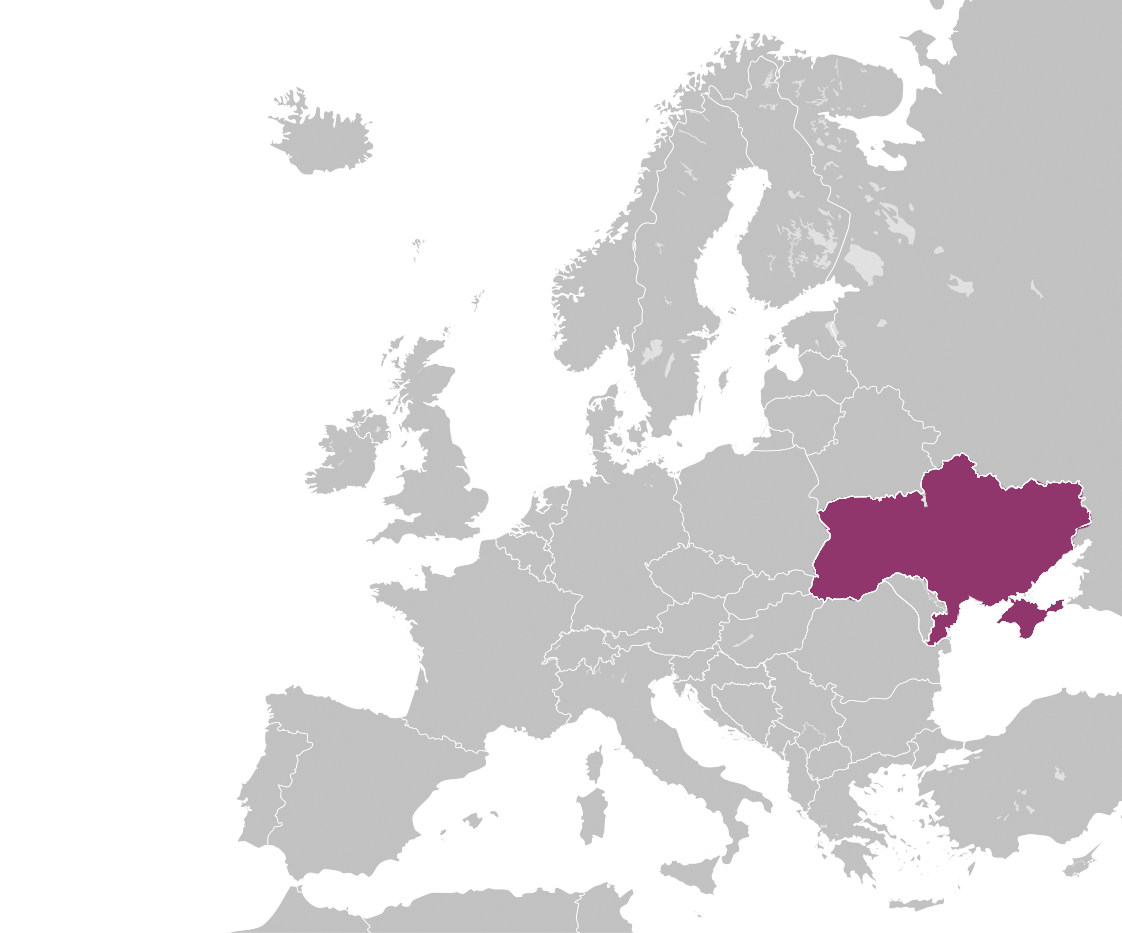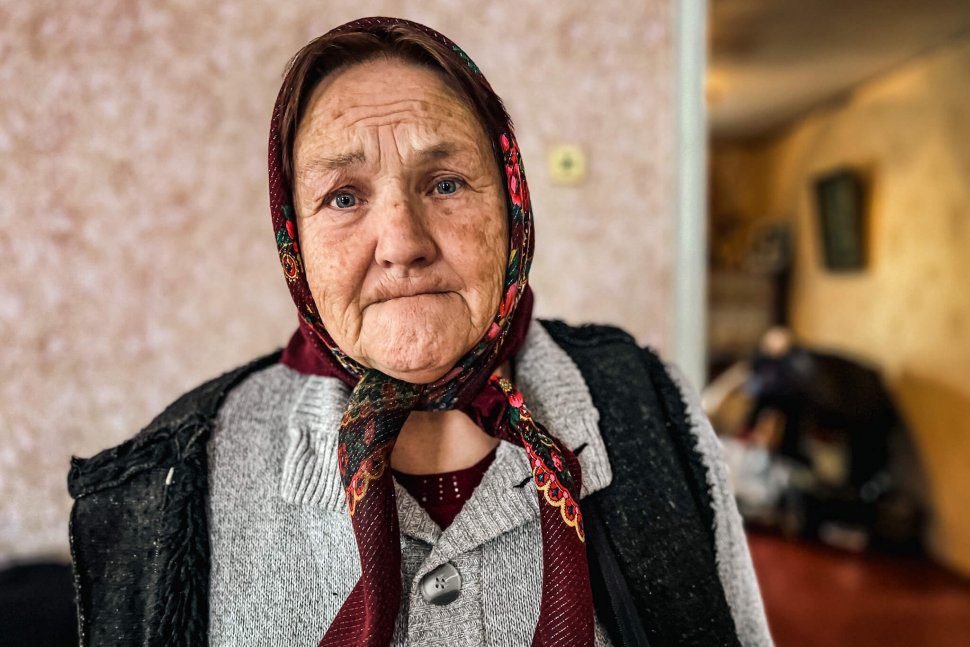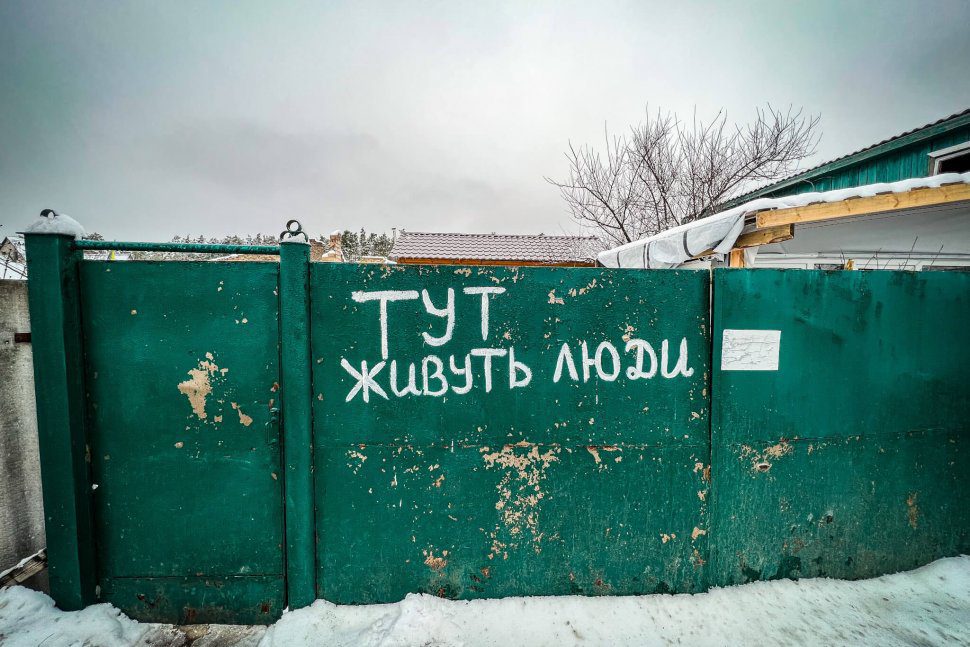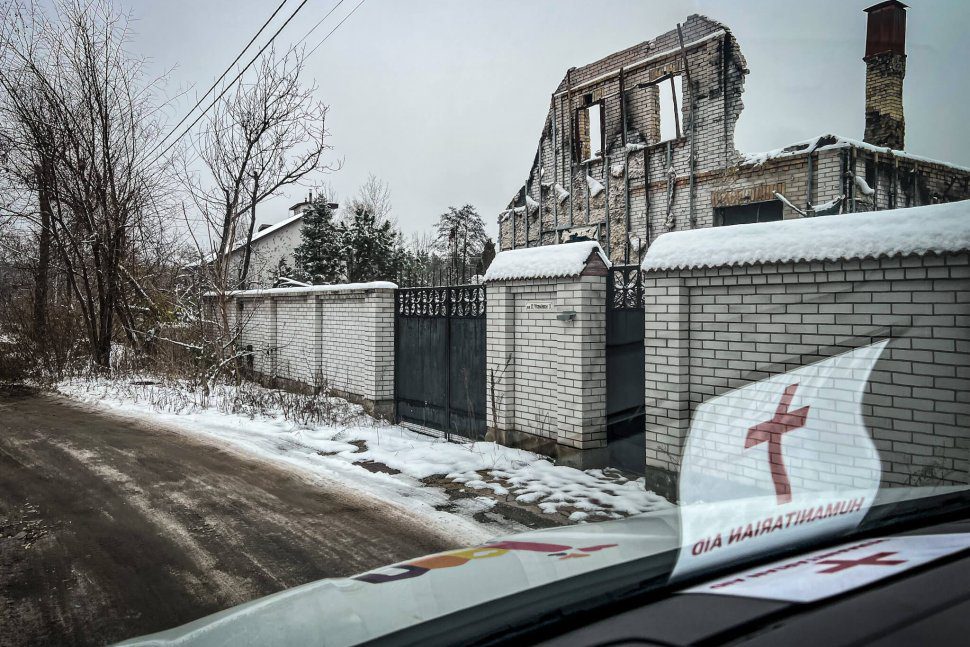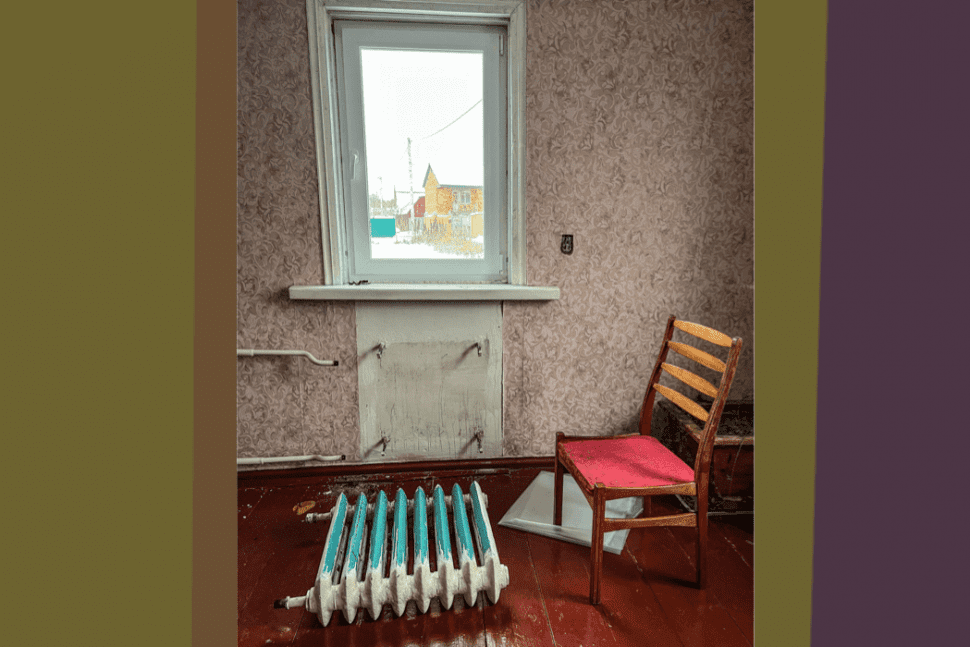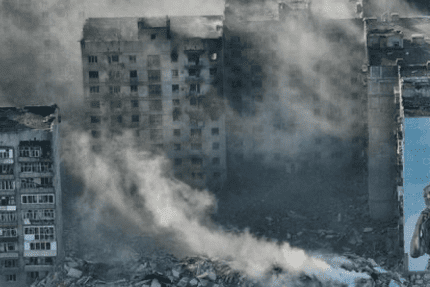“I haven’t done anything to anyone all my life. Why are they doing this to us?” Grandma Antonina shows us around her house in the village of Moshchena. She shows us the holes in the radiators that were ripped out by shrapnel from the bombs exploding in her yard. Bullets whizzed over her, her husband’s and her son’s heads as they entered the basement, which seemed the safest place in the house. For many of her neighbours, basements became graves. Phosphorus bombs turned many neighbouring farms into a burnt heap of rubble. They melted glass, incinerated the past, took away the future. They killed.
We are in Moshchena with friends who have been helping us to provide aid to the victims of the war locally since the beginning of the war. They are replacing the windows in the surviving buildings so that their inhabitants can stay here and survive the approaching winter. They are mainly elderly, ailing people, leading a quiet provincial life until the 24th of February. They received their livelihood from the economy and burned wood from the surrounding forests in their cookers. They had already seen a lot in their lives, but the worst had just befallen them.
“‘People live here'” – such were the inscriptions they painted on the gates and walls of their homes, believing that the assailants would respect the lives of civilians. They did not. Moshchena is completely destroyed, as are all the villages the Russians entered. In a meeting with the Kiev district authorities, we learn that the scale of the destruction is striking. The aggressor destroyed 26,000 buildings, including 207 kindergartens and schools, 1,568 blocks of flats and more than 22,500 single-family houses, of which 5,000 have not even left a trace.
Residents are organising themselves as best they can. Those who have windows and some fuel are inviting those who are left with nothing to join them. Not everyone has supplies, as mines were still lying in their fields in spring. It is still not possible to venture into the forests. Fuel for the winter is therefore also increasingly difficult to come by.
Grandma Antonina is in tears. She doesn’t understand where the war came from and why her family and neighbours were the victims. She is grateful for the new windows. The dramatic recollections cannot be erased from her memory, but the fear she has of the approaching winter can be eased.
The Warm Package for Ukraine is very tangible aid, aimed at the needs of the people we meet. It is a kit consisting of a warm blanket, sleeping bag, rocket stove, paraffin lamp and radio, giving access to information, including bomb alerts. It also includes high-energy meals and sets of basic hygiene products.
We are on the spot and see how the Russians are terrorising the people all over Ukraine. The war is no longer just being fought on the frontline. Rocket attacks on thermal power stations and power distribution stations are bringing life to a complete standstill. During blackouts, mobile networks do not work, there is no water, no heat, no anything. For us, this means navigating the great, gloomy city of Kiev with a compass; for its inhabitants, it means being deprived of the ability to meet basic needs.



